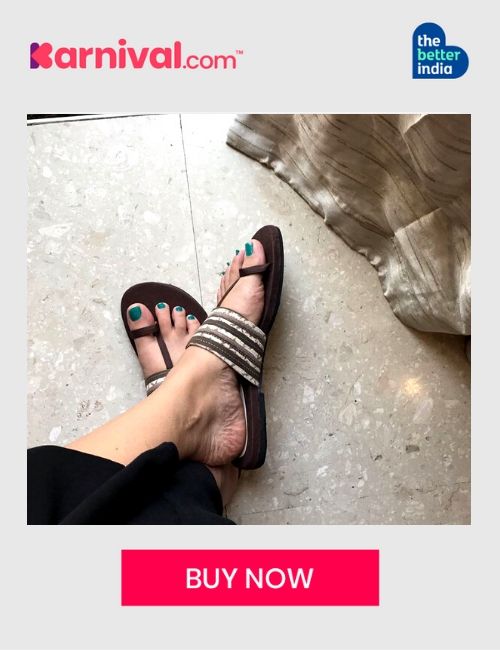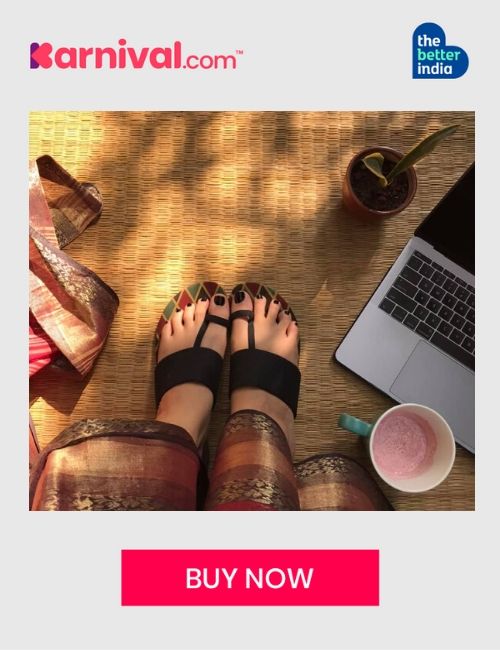Straps From Scraps, Soles From Recycled Tyres: You’ll Love These Sustainable Shoes!
Founder Megha wanted to make sustainable fashion more available, accessible and affordable. So she launched a footwear range that’s made completely of upcycled waste, from the straps to the sole! #LiveGreen #SlowFashion
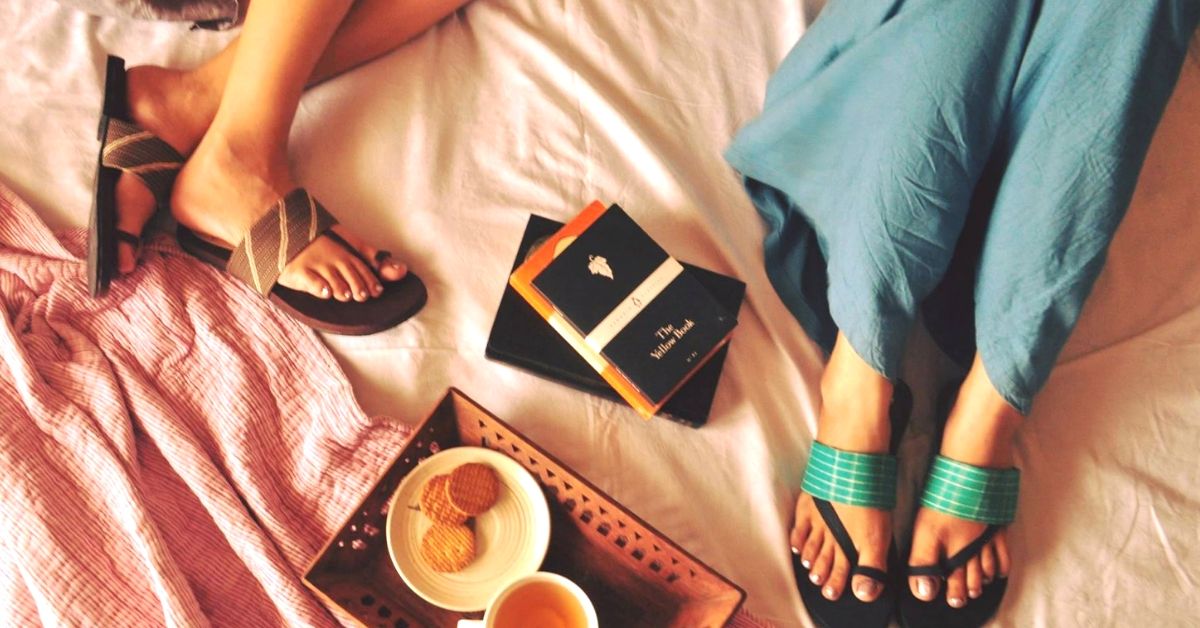
Megha Rawat was very young when she realised the value of resources. The 28-year-old grew up in Sri Ganganagar in Rajasthan where she witnessed the paucity of electricity and water.
“In the initial years of my childhood, the place where I lived had no running water and power supply was inconsistent. My brother and I used to go to the nearby canal to fetch water after school-hours and finish our homework in daylight,” recollects Megha.
Looking for sustainable footwear? Click here to check out a range of Kurio’s fashionable footwear!
Originally from Uttarakhand, Megha’s father was in the army and her mother, a school teacher. The family moved to Rajasthan when she was just two-and-half-years old.

Her parents inspired the values of minimalism and only bought what was necessary, reusing and recycling other items in every possible way. “My mother would stitch frocks for me from her old saris. I also saw these getting converted into table covers to foot-rugs and dusting cloth,” reminisces Megha.
Megha pursued a Master’s degree in computers from the National Institute of Technology in Kurukshetra in 2014. When she moved out of her town to the city for further studies, she saw people buying things on a whim and without giving any thought. “Soon they would discard them recklessly. I dwelled on it to understand the ‘true cost’ of it all,” Megha explains.
She felt there was a need for brands deeply-rooted in values that promote responsible consumption and this was the push behind Megha going on to found Kurio Designs in 2015 in Mumbai. Before founding Kurio, Megha had worked in an IT firm, and an export house.
Sustainability a top priority

Kurio makes environmentally-conscious, upcycled, vegan footwear and accessories that are made locally by employing skilled artisans and women from marginalised income groups.
“Since childhood I loved making things and it always happened that I used offcuts from my mom’s tailoring unit, or old papers. I have always enjoyed making things. Therefore, when I arrived at a point where I had to start something of my own, I knew for sure that whatever I make should be made responsibly, consciously and serves a purpose,” says Megha.
Kurio has a huge range of products like footwear, hair accessories, brooches, folders, fridge magnets, pouches, and coasters among others. One of the products that the brand is well known for is their line of Kolhapuris sandals and covered shoes which have been well received by buyers.
Kasturi Ratan Verma, 31, a PhD scholar based out of Mumbai discovered the brand over three years ago when she was browsing through different stalls at the Lil Flea in the city. “All the footwear that I own is from Kurio!” she says.
So, what does she like about footwear from the brand?
She says that in addition the footwear being extremely comfortable, she likes the fact that it is made up of sustainable materials. She is also quick to point out that Kurio footwear that she buys are priced reasonably compared to several sustainable fashion brands that exist in the market.
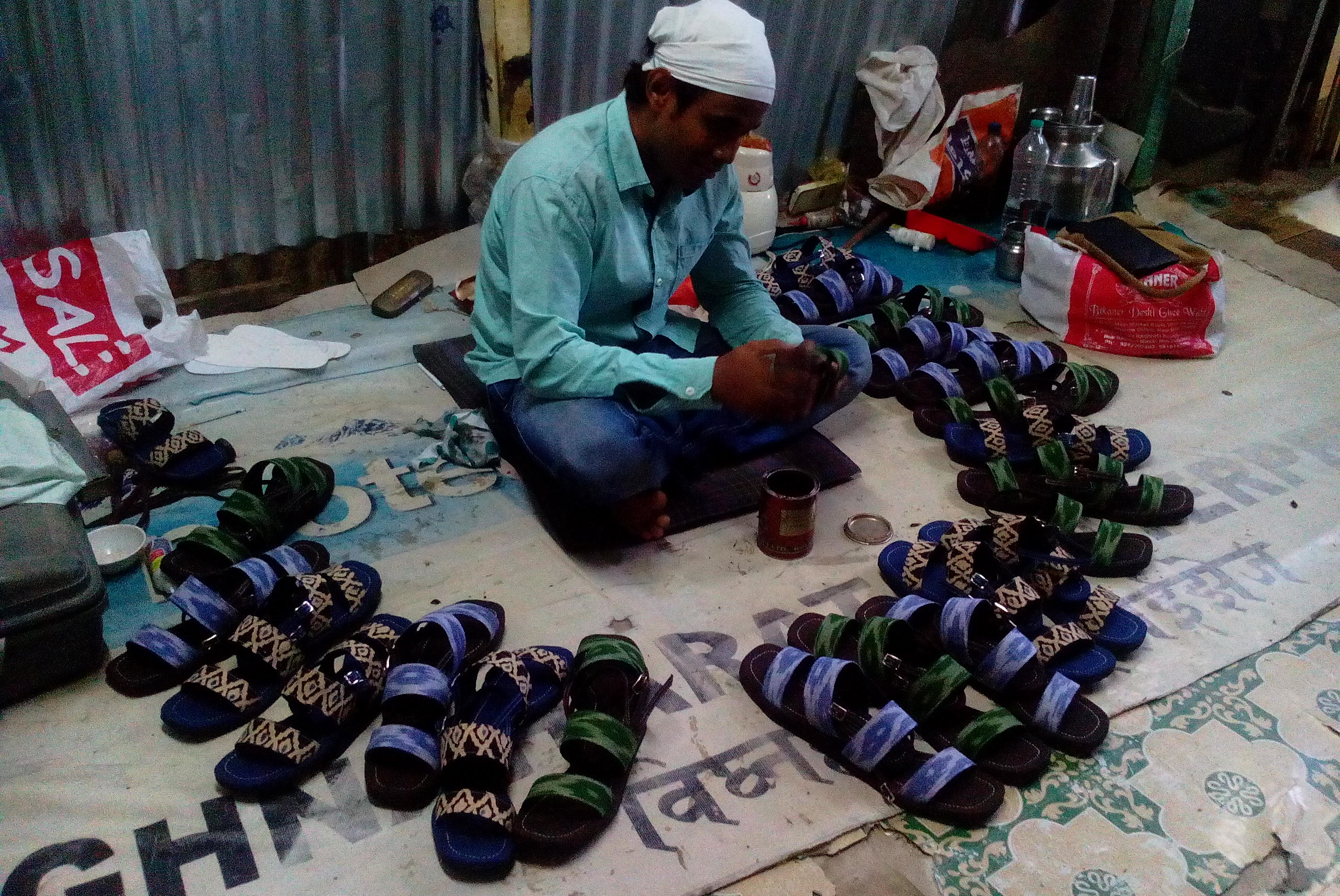
The straps of the footwear are made completely of fabric sourced from artisans and scraps of waste cloth material from stitching units. In addition to that, the sole of the footwear is made up of recycled tyres. They also use sheets made up of recycled material and the soft padding of the insole is also made of recycled material sourced from vendors.
Some of the fabric used are indigenously sourced from different corners of the country. These are naturally dyed, handspun and handwoven. “Khadi, Ajrakh, Kalamkari, are examples of indie fabrics that have been used in many of their collections,” says Megha.
“The water footprint and carbon footprint of our products are much less than any footwear made out of virgin material and assembly line setups. We also manufacture in such a way that the waste generated out of the production process is minimal,” says Megha.
Another reason why Kasturi felt good supporting the brand other than the quality and the sustainability aspect is the fact that it supports local artisans and weavers. These fabrics come from different weaving clusters across the country sourced directly from artisan communities.
Social impact on communities
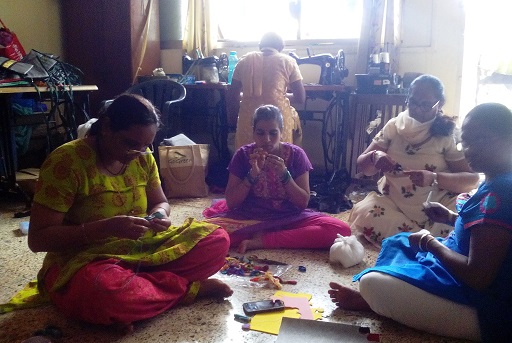
Seven years ago, Khushboo Sheikh was in the 8th standard when her father had to undergo a major operation due to liver problems. Her father was a professional zardosi artist but had to stop working after the operation as it started taking a toll on his health. It was very difficult for the family to make ends meet. Thankfully, she could finish her schooling because her brothers were working at the time and they could fund her education.
However, once she started going to college she wanted to be financially independent. One day, her brother-in-law who is an artisan told her about Kurio and how she could earn money by working at home. Kushboo, now 20, is on her way to finishing the third year of her B.Com degree.
It has been three years since she started working for Kurio making small patches out of waste material for brooches, pouches and other accessories. “I like working with Kurio because not only this gives me the comfort from working at home, I have also been given training in leaning new skills like stitching,” says Khushboo joyously. Her brother-in-law is also a karigar (artisan) who is working closely with Kurio, producing footwear for them.
So, how did they get the karigars on board?

Reaching out to the Karigars was purely ground-work, says Megha. She also adds that convincing them was a challenge because it involves developing trust, training and managing the karigars. However, they overcame this challenge by getting in touch with local NGOs who had contextual knowledge and were already working with these artisans.
“Karigars also started taking interest because they were getting regular payment along with regular, assured work,” she adds. Since they began in 2015, Megha asserts that Kurio has impacted the lives of at least 200 such artisans if not more.
Buy sustainable footwear by Kurio here.
Other challenges that Megha faces is developing a network and a supply chain for the materials. Also, since Kurio is a bootstrapped business, it is a challenge managing working capital. But, with time and experience, Megha believes that these challenges are being dealt with one day at a time.
Fashion being the second largest contributor to pollution, Megha truly believes that there is an ardent need for more initiatives and businesses that produce sustainably. “We strongly believe that environmental damage can be countered only if we make sustainable fashion more available, accessible and affordable. And currently, we are aiming for the same,” she says, signing off.
(Edited by Saiqua Sultan)
Like this story? Or have something to share?
Write to us: [email protected]
Connect with us on Facebook and Twitter.
If you found our stories insightful, informative, or even just enjoyable, we invite you to consider making a voluntary payment to support the work we do at The Better India. Your contribution helps us continue producing quality content that educates, inspires, and drives positive change.
Choose one of the payment options below for your contribution-
By paying for the stories you value, you directly contribute to sustaining our efforts focused on making a difference in the world. Together, let’s ensure that impactful stories continue to be told and shared, enriching lives and communities alike.
Thank you for your support. Here are some frequently asked questions you might find helpful to know why you are contributing?


This story made me
-
97
-
121
-
89
-
167



